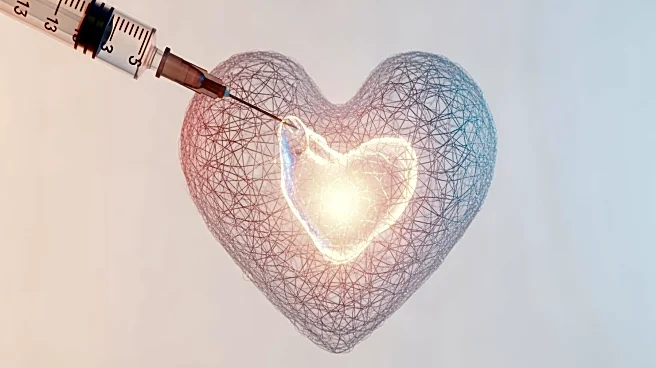What's Happening?
A study published in Nature explores the use of injectable extracellular matrix (ECM) biomaterials in myocardial infarction (MI) repair. Researchers injected ECM hydrogel into the infarcted area of rat hearts post-MI and observed spatially distinct genetic
programs promoting repair. The ECM hydrogel elicited upregulation of genes involved in immune modulation, vascular development, and myocardial salvage. The study demonstrated that ECM hydrogel treatment enhances cardiac repair by promoting angiogenesis, reducing inflammation, and supporting cardiomyocyte survival.
Why It's Important?
Myocardial infarction, commonly known as a heart attack, results in significant heart tissue damage. The use of ECM biomaterials offers a novel approach to enhance heart repair and improve recovery outcomes. By promoting angiogenesis and reducing inflammation, ECM hydrogel treatment could lead to better cardiac function and reduced risk of heart failure. This research highlights the potential of biomaterials in regenerative medicine, offering hope for improved treatments for heart attack patients.
What's Next?
Further studies are needed to explore the long-term effects and clinical applications of ECM hydrogel treatment in myocardial infarction. Researchers may conduct clinical trials to assess the safety and efficacy of ECM biomaterials in human patients. The development of ECM-based therapies could revolutionize cardiac care, providing new options for patients with heart disease. Continued research may also explore the use of ECM biomaterials in other types of tissue repair and regenerative medicine.
















